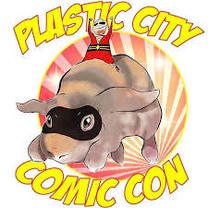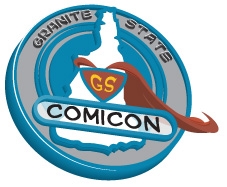A frequent topic of conversation on SFSN involves the merits (or lack thereof) of new sci-fi series or movies. In the broader universe of sci-fidom, some believe that that good science fiction must be based on only reasonable extrapolations of current scientific knowledge. Others, myself
included, believe that many of the best sci fi stories are those that start off with one seemingly outlandish premise, then surround it with reasonable science or science extrapolations (a concept that I believe was expressed by Asimov, although I’ve not been able to track down a quote). From an entertainment perspective, either benchmark can be a reasonable criterion for rating science fiction. However, I submit that the stories that fall into the second category are more interesting because of their potential to “create” a future.
Many science fiction writers will say that they aren’t trying to predict the future (as Ben Bova recently opined “…most of us don’t believe there is a “the future” to predict. The future isn’t inevitable, immutable. It’s created, moment by moment, by the things we do. Or fail to do.”). What more reasonable speculative fiction can do is shape the future. While there are few explicit acknowledgments of science fiction leading to specific research or technological advances (Martin Cooper crediting the Star Trek communicator as his inspiration for the cell phone is one), one wonders how many advances were the result of inspiration derived from reading science fiction.
So many of the things we take for granted today were considered outlandish propositions by many when they first appeared in science fiction: beam weapons (lasers and particle beams) in E.E. Doc Smith’s Lensman series, the atomic bombs of H.G.Wells (The World Set Free), Asimov’s proto-wireless internet in The Last Question, and Heinlein’s six dimension parallel universe space (most notably in The Number of the Beast), to name a few that immediately come to mind. All have their counterparts in either technology or scientific theory today. Were these stories merely prescient, or more in line with Bova’s perspective, catalysts for the Butterfly effect? Would our recent scientific and technological history be different if these authors (and others like them) had chosen different pursuits or had put forth different ideas? As a scientist and a life-long reader of science fiction, I know that much of my “out of the box” thinking has been shaped by the alternate paths I was introduced to in my reading.
The point of all this rambling? Just that I believe that science fiction that coherently breaks the bounds of conventional thinking can be good science fiction–and good entertainment. But that still doesn’t excuse “things” (for lack of a better term) like Mega Python vs. Gatoroid!






Great first post! I think there is room for all kinds of sci fi, even megapython has his place! He would have a better place if the people could ever act in those movies though.
Thanks for the comment Sam. I think there are several here at SFSN who would agree that even creatures like megapython are better than their surrounding human cast. 🙂 I think I’m just drawn to sci-fi that stretches my mind rather than simply entertaining, and that’s probably because of my scientific background.
I enjoyed your thoughts on this subject-in fact, I`d argue that good SF writing is so important because it encourages “out of the box thinking” for people in any field, scientific or creative.
Thanks for your kind comments. I completely agree with you! I think, from the larger perspective, a society that loses its sense of wonder, its sense of curiosity, is doomed to stagnate. That’s why I’ve never really bought into Utopian fiction, because it seems to me that a “perfect” world would quickly become dull and lead to a general attitude of “why bother?”
Thanks for visiting us here at SFSN!